Ethics at the Hiring Table: Exploring AI (Artificial Intelligence) Recruitment Challenges

Ethics at the Hiring Table: Exploring AI (Artificial Intelligence) Recruitment Challenges
In the hustle and bustle of recruitment, artificial intelligence (AI) has become the game-changer, flipping the script on how hiring gets done. With AI taking care of tasks like checking resumes and evaluating candidates, the hiring process is getting a serious upgrade. This innovative approach, fueled by AI, is redefining how organizations spot the perfect fit for their teams. Employees and candidates may resist the implementation of AI in recruitment due to concerns about job security, biases, or the fear of being misunderstood by algorithms. This resistance can result in a lack of trust in the recruitment process.
In 2019, Unilever saw big benefits from using AI in hiring. They saved nearly £1 million and cut down on interview time by about 100,000 hours. They also made progress in having a more diverse workforce, especially in managerial roles where there was a better balance between genders. On the other hand, Amazon had issues with an AI hiring system that was unfair to women because it learned from biased data. The system, which downgraded resumes with terms like “women,” had to be scrapped eventually.
The use of AI in hiring is all about algorithms going through lots of data to find the best candidates. While this is helpful, it also brings up concerns about fairness, discrimination, and privacy. In this blog, we will talk about these everyday challenges, see how they affect things, and suggest responsible ways to use this powerful technology.
Algorithmic Bias
Algorithmic bias occurs when an AI system utilizes “training data that is unrepresentative or incomplete” or relies on flawed information reflecting historical inequalities. As AI systems depend on instructions and inputs from their human developers and users, inaccuracies or omissions in data can result in systematically skewed outputs, leading to bias. AI systems, much like humans, can exhibit bias. They have the potential to unknowingly sustain and even magnify existing prejudices present in historical data.
“Algorithms can make decisions or deliver services at scale to millions of more people, but if the algorithm is biased, then it is spreading bias to millions of more people who may not have experienced the bias otherwise.”
–Dr Kalinda Ukanwa, Assistant Professor of Marketing (Quantitative), and expert on algorithmic bias, algorithmic decision-making, at the USC Marshall School of Business
Lack of Transparency
Transparency plays a key role in establishing trust, and the lack of clarity in AI systems during recruitment can instill doubt and erode candidates’ confidence in the process. Imagine AI transparency as akin to reading a recipe for a dish. It unveils the ingredients (data), the cooking process (decision-making), and the result (outcomes). Just as a recipe aid in comprehending and trusting the dish being prepared, AI transparency should foster understanding and confidence in how AI systems operate.
While the call for transparency in AI is gaining momentum, it’s equally important to acknowledge the potential risks, as discussed in the Harvard Business Review article titled “The AI Transparency Paradox.” This suggests that when we share information about how AI functions, there’s a risk it could be hacked. Providing more details might make AI systems more vulnerable to various types of attacks. To handle this situation effectively, organizations need to carefully think about how they deal with and lessen the risks associated with AI. Striking a delicate balance between transparency and data security is crucial in this process.
Data Privacy Concerns
Effectively managing vast volumes of confidential candidate data, AI recruitment tools must adhere to rigorous privacy standards. Organizations should prioritize data security and establish clear policies outlining the collection, storage, and utilization of personal information.
According to a survey conducted by Indeed, just over 40% of Canadian job seekers worry about AI compromising data privacy and security in recruitment and hiring processes.
While AI stands as a formidable force in ensuring data privacy and security, the human touch remains essential. The effectiveness of AI systems is intricately tied to the capabilities of the individuals who craft, implement, and oversee them.
Design Principles
Exclusion in principle can create barriers for some users in accessing a platform, causing challenges not only for the users but also for the overall success of businesses. To ensure diverse and inclusive hiring practices with AI, organizations must adopt an inclusive design mindset, focusing on designing with individuals rather than for them. As emphasized by Microsoft, when developing new systems, it is crucial to consider who the system benefits, who it might exclude, and how to implement inclusive recruitment strategies for all.
Artificial Intelligence (AI) has significant promise in recruitment, yet it carries ethical obligations that organizations must acknowledge. To leverage the advantages of AI in a responsible manner, businesses need to tackle bias issues, champion transparency, and embrace inclusive design principles in their practices. As we adapt to the dynamic shifts of recruitment technology, maintaining a focus on ethical considerations is crucial. This approach aims to shape a future where AI contributes to diversity, equity, and transparency in the hiring process.
INNoVA supports businesses as they embark on transforming their recruitment strategies, creating an environment where every candidate, irrespective of their background, can flourish. Enhance your recruitment approach with our inclusive consulting, shaping a future where talent recognizes no limitations.
Ancy Kuruthukulangara
Join Our Newsletter
Join the INNoVA family! The best way to keep in touch and be informed on our hiring process.



